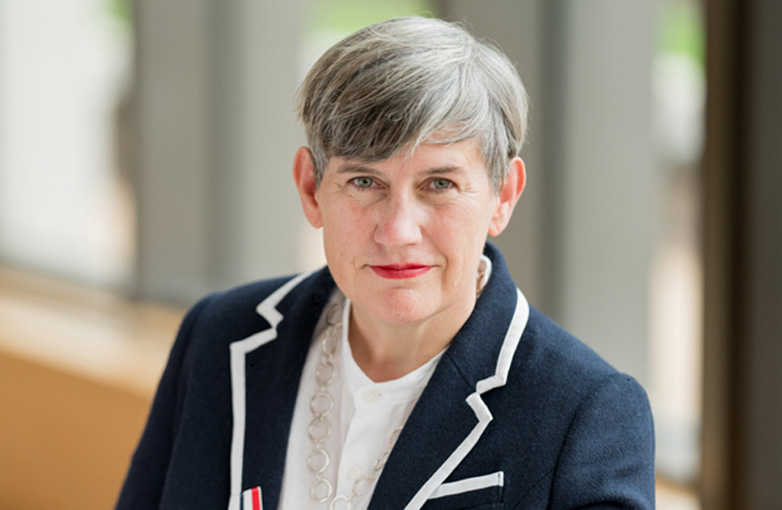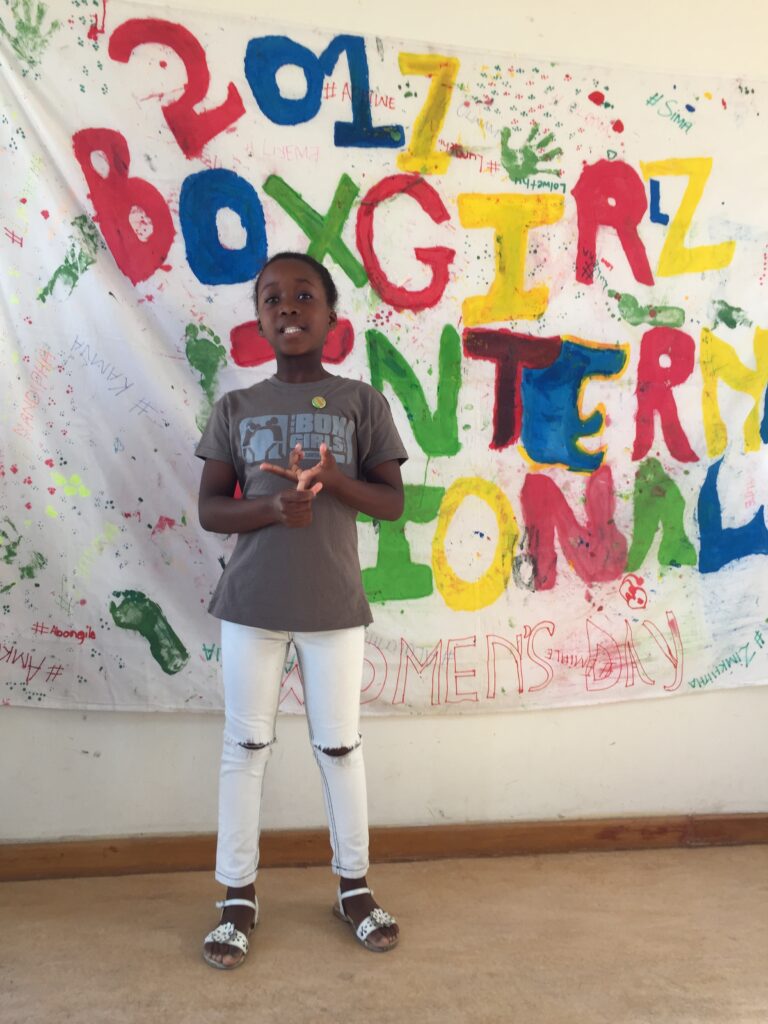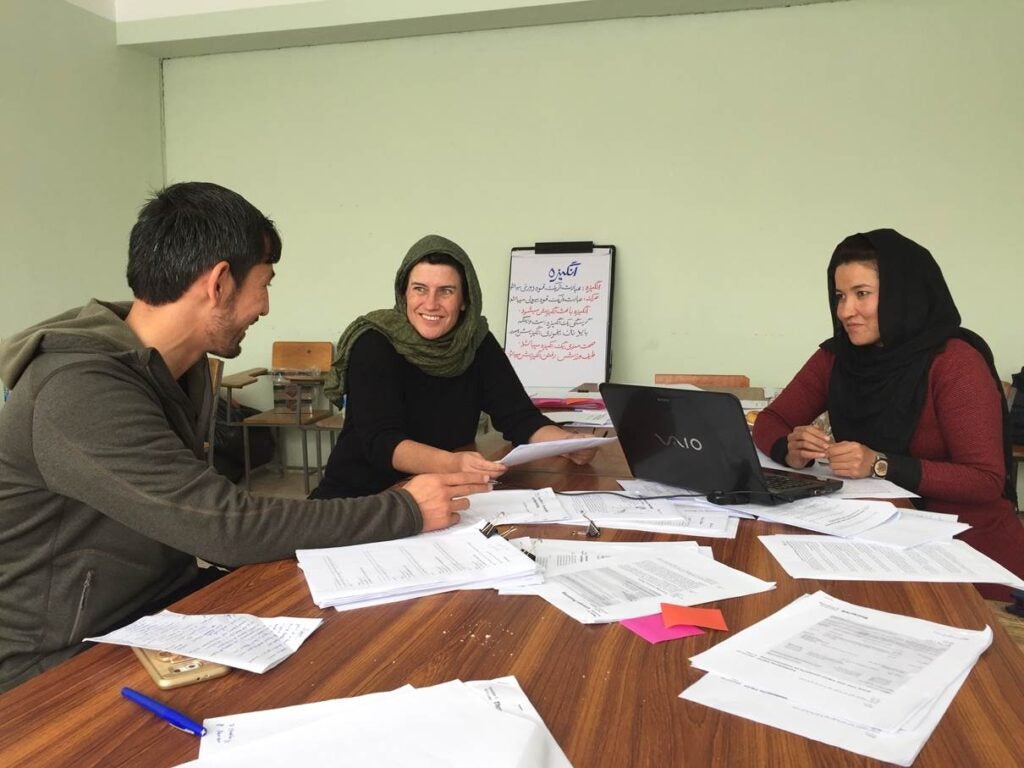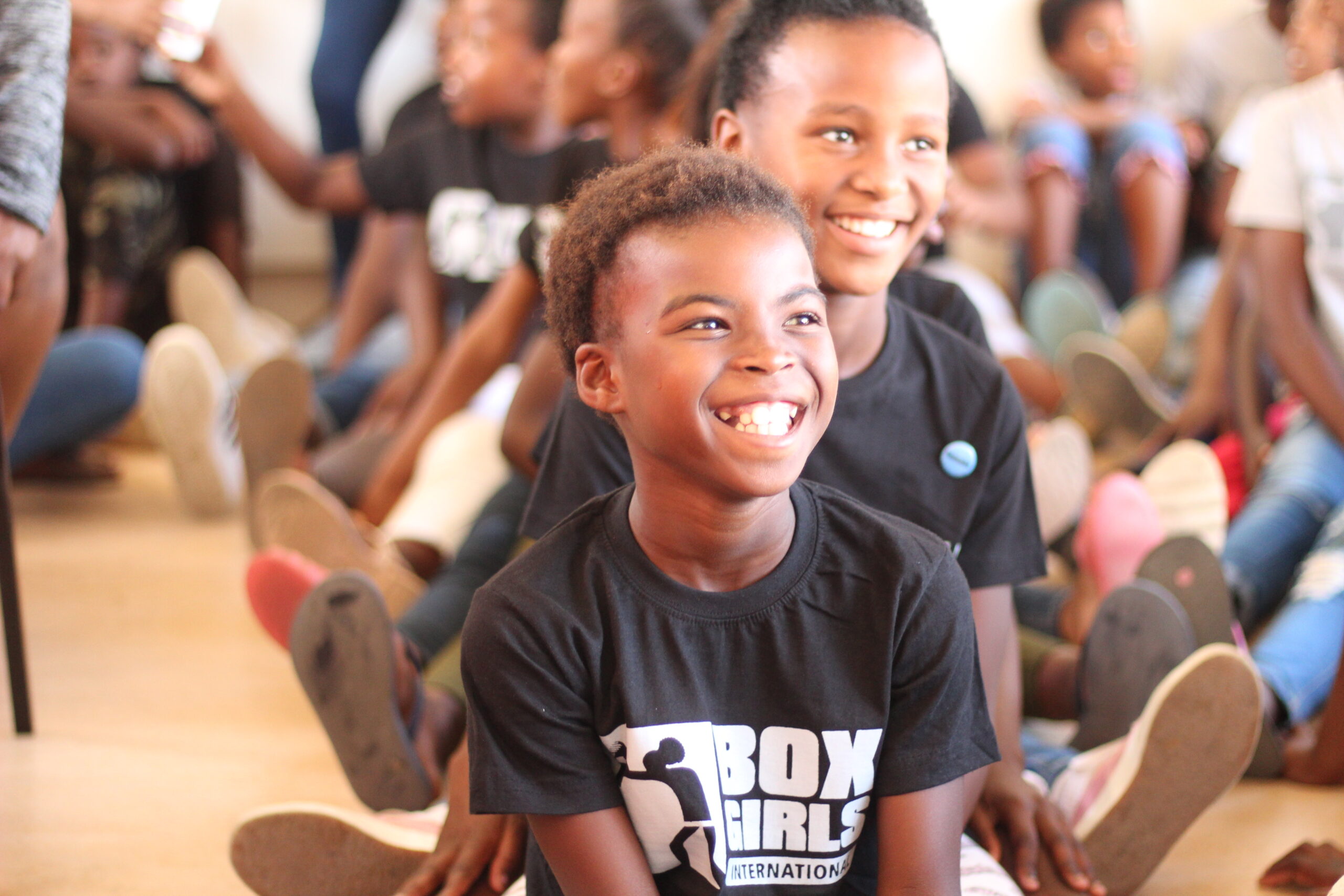In 2001, Heather Cameron was teaching in Berlin and living in a vibrant yet disadvantaged area of the city. She wanted to do something to support and strengthen her community. She wrestled with philosophical and theoretical ideas that had shaped her research and studies in social and political thought, but soon realized that practical solutions might be the best approach. “If you want safe communities, you need strong girls,” she reasoned. Then, she came upon a novel idea that has transformed lives and communities around the world: start a female boxing club.
Why boxing? Cameron, now the Michael B. Kaufman Professor of Practice in Social Entrepreneurship at Washington University’s Brown School, believes that many girls and women are held back by social structures. “They are continually told to never show aggression, defer to men, stay behind this line,” Cameron says. “The fact is that boxing is one of those sports that allow women to challenge limiting gender stereotypes, feel their own power, and put it to work. We know in terms of international development that if community projects are to be successful, we need women prepared and willing to take leadership roles. I wanted to help contribute to that.”
“I started off really small,” Cameron recalled. “I moved tables out of the way and started boxing. At the beginning it was only me, a motorcycle, and a humongous bag of boxing equipment driving from school to school.
Cameron founded the Boxgirls project in 2001 to offer self-defense training to young girls in Berlin’s inner-city neighborhoods of Kreuzberg and Neukölln. Over time, the program developed into a community organization that offers a space for women and girls in Berlin to train, learn, and grow. Besides improving the girls’ physical and mental fitness, the organization uses boxing training to pursue a higher goal. “We want to encourage girls and women to stand up for more social participation and rights of women and to take responsibility for social change,” Cameron said.

Our mission here is not just to create excellent boxers. It is to help girls and women become more self-confident and start taking leadership roles to build safer communities.
Heather Cameron
In 2005, Boxgirls was selected by the German Bundestag as a model project for the United Nations’ International Year of Sport and Physical Education. The success of the program soon led to an international effort resulting in the creation of a partnership between Boxgirls and local activists in Kenya. Together, the group created Boxgirls Kenya, which serves underprivileged girls and women living in some of Nairobi’s toughest neighborhoods.
Boxgirls was voted one of the world’s 16 most innovative sports programs in 2007 by Changemakers, the Web-based global association of social entrepreneurs. It also won funding from Strengthening Girls!, a German government project aimed at encouraging girls and women to become more assertive through sport, especially in activities traditionally dominated by men, such as rugby, football, rock climbing, and capoeira, a game that combines martial arts and dancing. In 2010, Boxgirls won the Chancellor’s special prize of Start Social and received an invitation to a special event at the German Chancellery and a laudation from Chancellor Merkel. Boxgirls also won a Google Impact Prize, and Cameron was recognized with an Ashoka Fellowship.

Boxgirls South Africa began in 2009 when the organization was invited to work with primary schools in the township of Khayelitsha in Cape Town. Since then, Boxgirls has expanded its programs from operating in 19 primary schools to forging 20 active partnerships at the start of 2018. The program was evaluated through a randomized control trial by the German Sport University, one of the first randomized control trials on sport for development programs. It proved the effectiveness of Boxgirls’ program in the areas of academic achievement, girls’ self esteem and violence prevention. The delivery of Boxgirls programming is now done by partners in South Africa.
The knowledge created by Boxgirls together with other girls and women focused sports for development programs has flowed into the www.girlsinthelead.org platform. This digital exchange program funded by the Swedish Postcode Foundation, brought leaders in sport for development from across India, Europe, Africa and North and South America together to build better projects and advocate for sport as a way to reach the Sustainable Development Goals. Much of the content of the platform was sourced from Boxgirls’ partners and then improved and digitally enhanced by Brown School practicum students from social work and public health.
“Our success and learning from Boxgirls also helped me train teachers in Kabul and Mazar-el-Sharif to keep girls active at school,” said Cameron. She used her experiences developing participatory sport programs when she was sent as an international expert from Germany with the GIZ to support the Ministry of Education in Afghanistan in 2015-2017 on many in country visits. A DVD curriculum of sport teaching videos focusing on participation and inclusion developed with the Ministry’s teacher trainers in Afghanistan and Cameron’s team was used to train teachers in over 3,000 primary schools across Afghanistan.

Cameron also is the director of Washington University’s Social Entrepreneurship and Innovation Lab, a joint initiative of the Brown School and Olin Business School. In March of 2017, she took five Olin Business School students to Cape Town to work on Boxgirls’ marketing and impact strategy as part of Olin’s Center for Experiential Learning practicum.
“Our mission here is not just to create excellent boxers,” Cameron said. “It is to help girls and women become more self-confident and start taking leadership roles to build safer communities.”
Cameron added, “The success of sustainable development goals depends on effective grassroots organizations, innovative foundations and government, and impact-oriented university research. At the Brown School, with our practice, policy, and research strength, we contribute to all three at a global level.”
Related content
Boxgirls International
TEDx Talks by Heather Cameron
The world changers: WashU women making a better world
Social entrepreneurship aims to improve the world by developing solutions to social, cultural, and environmental issues. Washington University has long supported social entrepreneurship through programs at the Skandalaris Center for Innovation & Entrepreneurship and at each of the university’s schools.
